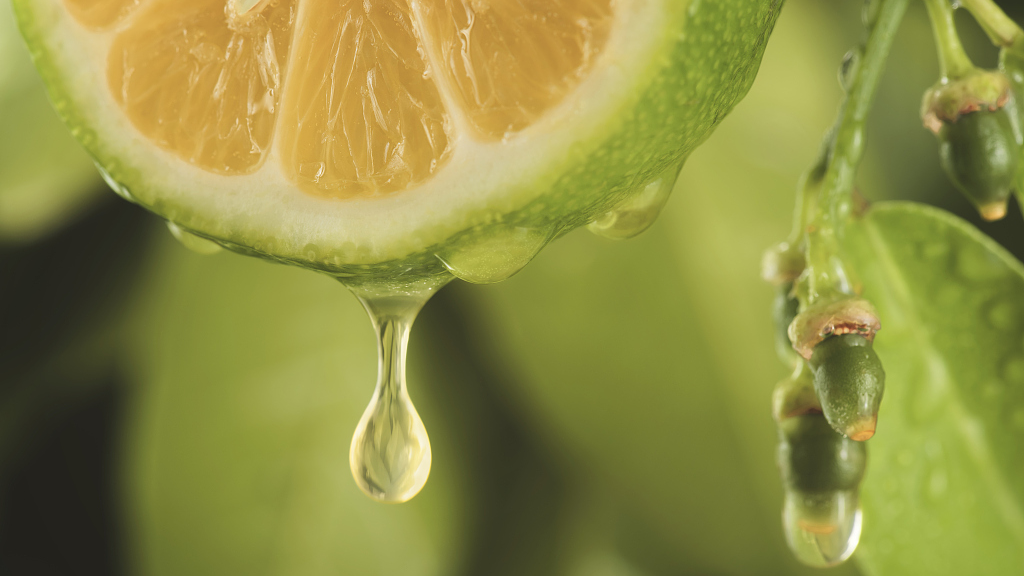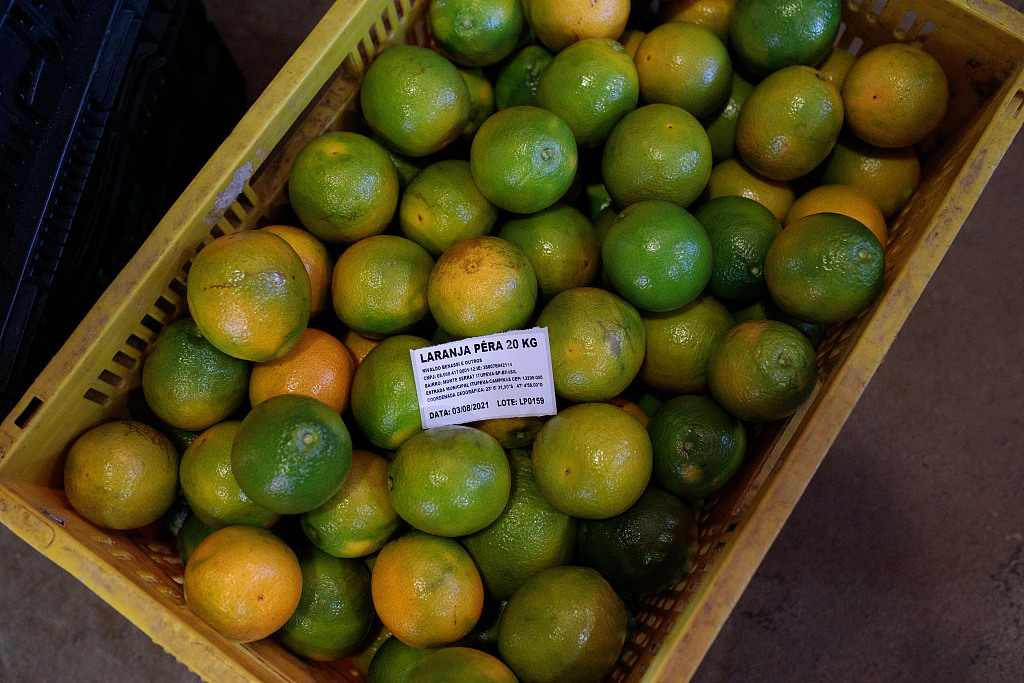Brazil, a leading orange juice exporter accounting for about 60 percent of the global supply, has seen its orange juice stock sharply drop to around 85,000 tonnes, a 40 percent decrease yearly, according to the Brazilian Association of Citrus Exporters (Citrus BR).

Brazil is a leading orange juice exporter accounting for about 60 percent of the global supply. /CFP
Brazil is a leading orange juice exporter accounting for about 60 percent of the global supply. /CFP
This decline is attributed to the impact of a citrus greening disease, a severe citrus plant ailment also known as Candidatus Liberobacter Asiaticum or citrus greening disease, compounded by the effects of climate change.
In an orchard in southeast Brazil's Sao Paulo State, a major orange-producing region, the disease has affected 20 hectares of fruit trees, resulting in a 10-percent reduction in the total output.
"Citrus growers are grappling with two challenges, with the citrus greening disease taking the largest toll, endangering orchards worldwide. The most distressing aspect is that although solutions have been proposed, there is no guaranteed cure for all," said Leonardo Krauss, a business partner of a citrus growing company.
Climate change exacerbates the situation, as oranges thrive in warm and humid conditions rather than extreme heat. In affected orchards, unripe oranges strewn around trees have become a common sight.
"Climate change plays another role in the failed yield. Hotter weather leads to premature fruit drop, as fruits do not mature enough to be picked. The result is that we cannot deliver fruits to buyers on time," said Krauss.

A box of oranges at a packing house in Itupeva, Sao Paulo state, Brazil, on Aug. 3, 2021. /CFP
A box of oranges at a packing house in Itupeva, Sao Paulo state, Brazil, on Aug. 3, 2021. /CFP
This delay in delivery has created a ripple effect in the production chain, with orange juice producers grappling with rising prices. For these producers, they are facing other problems.
"With only nine months for growing and picking citruses, Brazil has to guarantee citrus supply for global markets all year round. Thus, the poor yield of this quarter, similar to the situation last quarter, falls short of market demand," said Ibiapaba Netto, executive director of Citrus BR.
The impact is felt not only in the quantity, but also in the quality of orange juice. Brazil's exports of orange juice with varying sugar contents stem from citrus growing in three of the four seasons in the country, making the shortfall particularly challenging.
"This is an unprecedentedly dire situation. The low stock levels not only affect the capacity for producing hybrid orange juice, but also impact the flavor, quantity, and frequency of delivery," said Netto.